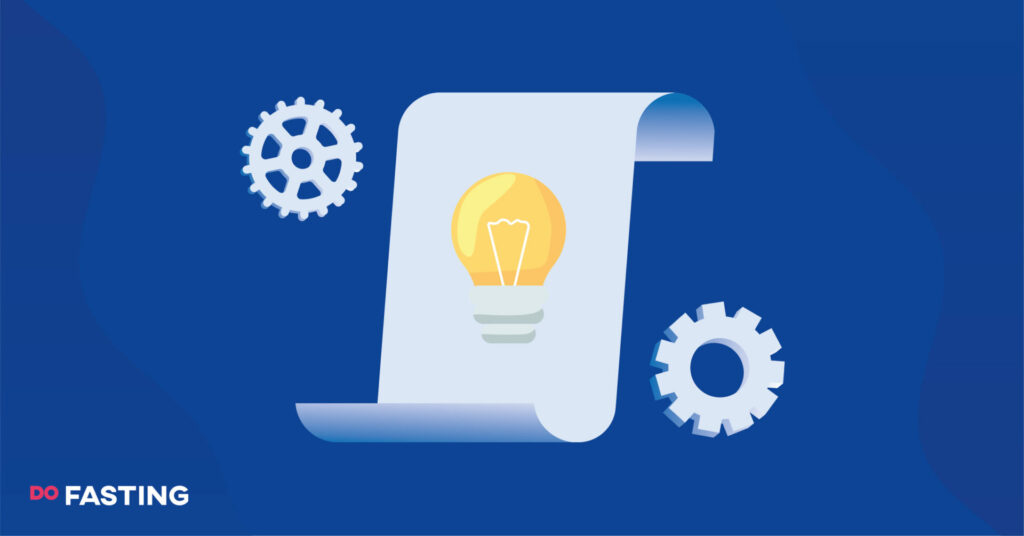Contents
What Is a Mediterranean Diet?
True to its name, the Mediterranean diet is centered around the various healthy foods found primarily across the Mediterranean area. It includes healthy fats, vegetables, whole grains, and lean animal protein sources.
Mediterranean diets can differ depending on the region, such as a Pesco-Mediterranean diet, but most are plant-rich diets that rely on unsaturated fats for calories. Specific foods include:
- Fish and seafood, like tuna and crab.
- Fruits, like apples and grapes.
- Healthy fats, like extra virgin olive oil (EVOO) and avocados.
- Nuts and seeds, like walnuts and sunflower seeds.
- Poultry, like chicken and duck.
- Vegetables, like tomatoes and kale.
- Whole grains, like rice and corn.
Take a
1-minute quiz
and discover how much weight you can lose with DoFasting!

What Are the Benefits of Following a Mediterranean Diet While Doing Intermittent Fasting?
There are many health benefits associated with a Mediterranean meal plan during intermittent fasting and time-restricted eating, from preventing cognitive decline to managing body weight. By sticking to a Pesco-Mediterranean diet with plenty of plant foods, you can expect the following health benefits.
It May Improve Your Cardiovascular Health When Combining the Mediterranean Diet With Intermittent Fasting
Intermittent fasting itself helps manage cholesterol levels and blood pressure, optimizing cardiovascular health and preventing heart disease.
However, according to the American College of Cardiology, eating Mediterranean, plant-based diets also prevents cardiovascular disease, coronary artery disease, and further boosts your heart health.
That is because eating non-saturated fats such as salmon, nuts, and olive oil lead to a healthier heart that is less likely to be affected by cardiovascular disease and other cardio-centric issues.
Lower Risk of Type 2 Diabetes Can Also Be Seen as a Benefit of Combining These Two Diets
Diabetes is a common illness these days, and reducing the risk of becoming pre-diabetic or diabetic is important for your future wellness. And intermittent fasting with the Mediterranean diet is a great way to achieve this.
Not only does fasting help you lose weight and level out metabolic syndrome reactions, but fasting can heal insulin immunity and resistance that promote weight gain, as well. Being a healthy weight is the first step to preventing diabetes.
Additionally, the healthy diet associated with Mediterranean plant and animal food sources regulates glucose and further supports weight loss and diabetic well-being.
By Following a Healthy, Fat-rich, Whole Grain Diet There Is a Higher Chance of Avoiding Obesity and Accelerating Weight Loss
Unlike a typical American diet that revolves around saturated fats and processed foods, the Mediterranean diet uses healthy choices to keep your body fueled and able to push through fasting windows for optimal weight loss.
Due to this, those who use fasting with Mediterranean food options tend to be less obese and have fewer cholesterol-related illnesses, thanks to the lack of saturated fats and high-sugar foods that can raise cholesterol.
Chronic Conditions Can Be Improved With the Help of Fasting and Following the Mediterranean Diet
There is proof that by eating healthy and practicing intermittent fasting, a variety of chronic conditions and pain can be alleviated.
Because you are able to prevent nutritional deficiencies and become more physically active when eating a healthy Mediterranean diet, chronic diseases like cancer and neurodegenerative disorders can be actively improved and prevented.
Plus, by fighting against levels of inflammation in the body that contribute to chronic conditions and pain, intermittent fasting helps manage monocytes in the system that contribute to inflammation and your reactions to it.
Which Intermittent Fasting Type Is the Best When Following the Mediterranean Diet?
While intermittent fasting types are very effective in general, one of the best combinations with a Mediterranean eating plan is called the 16:8 method. This involves fasting for 16 hours a day, and eating only within the remaining 8 hours.
As promoted by the American College of Cardiology study, narrowing your eating window to 8 hours not only allows you to have a diverse and plentiful meal plan, but you also get all the nutrients and vitamins for your daily requirements, while still being able to shed pounds and become healthier.
7 Practical Tips on How To Be Successful When Combining the Mediterranean Diet and Intermittent Fasting
If you think intermittent fasting with a Mediterranean-style diet sounds right for you, then we have some great tips to help you get started and successfully smash all of your goals— so, read on for our top seven tips.
-
When Starting the Mediterranean Diet Think of Extra Virgin Olive Oil as Your Main Fat
Extra virgin olive oil (EVOO) will undoubtedly become your go-to fat during eating windows.
Not only is olive oil packed with antioxidants and fatty acids that are great for heart health, but it also helps you feel full for longer, which is essential for fasting windows. That’s due to its effects on hunger hormones that keep you satisfied during calorie deficits.
-
The Majority of Your Protein Should Come From Plants and Seafood
The efficacy of eating Mediterranean diets relies greatly on the healthy food choices they contain, particularly when it comes to protein.
By filling yourself with plants and seafood as sources of lean protein, you can avoid eating too much red meat or fatty proteins like beef or pork which makes it difficult for weight loss, and can lead to heart disease.
-
To Avoid Hungriness During the Fast You Should Include as Many Whole Grains, Fruits, and Veggies in Your Last Meal as Possible
Set yourself up for success by loading your last meal before fasting with hardy and healthy items like fruit, fibrous vegetables, and whole grains to fuel you through the initial calorie deficit.
Instead of eating processed foods that spike your blood sugar levels and leave you feeling hungry shortly after, choose from the core food groups for Mediterranean eating.
-
Make a Habit of Using Salt-free Seasoning During Your Eating Window
Too much sodium can be very harmful to you, leading to issues like headaches, dehydration, high blood pressure, and more. So, to kick the salt habit, try sticking to sodium-free seasonings and spice blends to flavor your food during eating periods.
-
Increase the Daily Intake of Calcium-rich Foods
Calcium levels in the body are responsible for many important things, including blood clotting and nerve function.
How much calcium you should consume daily depends on your age and gender, but most people should be having around 1,000-1,200 mg of calcium. Dairy products are great sources of calcium, as are sardines, lentils, and leafy greens.
-
Download an Intermittent Fasting App That Allows You to Track Fasting Windows and Eaten Foods
Keeping track of calories, water, and fasting periods can be overwhelming, try downloading our very own DoFasting app to help.
From notifying you when it’s time to fast to simple calorie counting logs and over 5,000 recipes to choose from, your meal planning will be easier than ever. Track your nutrients and watch your progress as you succeed in your intermittent fasting goals!
Take a
1-minute quiz
and discover how much weight you can lose with DoFasting!

-
All New Diet Changes Should Be Done at a Slower Pace
Finally, it’s important to take the time necessary to change your diet and lifestyle. No major changes happen overnight, so don’t be afraid to ease your way into a Mediterranean, intermittent fasting diet at a pace you’re comfortable with.
If this is a new change, switching from eating plenty of beef to seafood, or having three meals a day to fasting for 16 hours can be quite a shock, so listen to your body and take care of yourself!
Should You Start Fasting Now?
Fasting is generally safe for most people, however, if you fall into one of the following categories, do not begin intermittent fasting without medical advice or supervision:
- A history of eating disorders.
- Below 18.
- Breastfeeding or pregnant.
- Diabetic.
- Insomniac.
- Taking prescription medications.
Conclusion
If you are looking for a new lifestyle and diet plan, intermittent fasting and the Mediterranean-style diet might be the right choice for you! With many benefits to your health, including weight loss, preventing diabetes, and better heart health, you can truly better your day-to-day life this way. So, why not take the first step today!
Take a
1-minute quiz
and discover how much weight you can lose with DoFasting!

See how DoFasting will improve your life
Find out what works for you with this 60-sec quiz approved by our experts and get your personal revolutionary fasting assistant.
Start the Quiz















